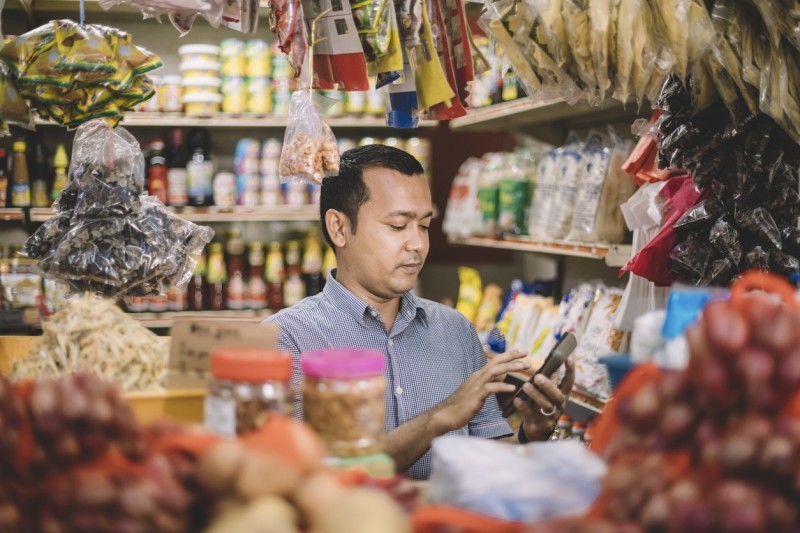
Image credit: MIFC
KOTA KINABALU (Aug 20): The Sabah government’s efforts to enhance halal industry in the state has created a synergy with the federal government in efforts to plan a more holistic halal industry development agenda.
Sabah Islamic Religious Council (MUIS) chairman Datuk Seri Yahya Hussin said Sabah has great potential for halal industry which is known as a major tourist destination and for its large agricultural sector.
“Sabah will continue to empower the halal industry, particularly among small and medium enterprises (SMEs) through MUIS Halal Hub,” he said during the launching ceremony of International
Halal Symposium 2024 (IHS2024) here today.
Tanya added the MUIS Halal Hub would continue to expand its efforts in assisting SMEs in obtaining the Cottage Industry Halal Certificate (SHIK) which is beneficial for entrepreneurs without a dedicated processing facility or permanent factory.
“Therefore, MUIS encourages SME entrepreneurs to seize this opportunity to obtain the Malaysian halal certificate, thereby expanding their business in local and international levels,” he said.
The symposium was organised by the Faculty of Food Science and Nutrition, Universiti Malaysia Sabah (UMS) with almost 200 scholars and industry experts from across the globe participating.
According to Yahya, the symposium is the best platform to bring new views and ideas about all aspects of halal knowledge which will be beneficial as a reference for future advancements in the industry.
With the theme “Advancing Halal Science and Technology – Innovations, Challenges and Opportunities”, Yahya said it is appropriate as Malaysia continues to lead in the development and application of halal science and technology.
“Our commitment to innovation ensures that we remain at the forefront of addressing the evolving needs of the global halal market.
“By embracing new technologies, we enhance the quality, safety and integrity of halal products and services, thereby reinforcing consumer trust and expanding our market reach.
“Malaysian halal industry has seen remarkable developments. Organizations have revolutionised and strengthened their halal integrated platforms, empowering entrepreneurs by connecting them to stakeholders across the halal ecosystem worldwide.
“Malaysia, a pioneer in the halal industry, has made significant strides, growing from strength to strength.
Malaysia introduced its Halal Industry Master Plan 2030 (HIMP 2030) last year, projecting the halal industry to reach about RM523.53 billion (113.2 billion USD) by 2030 and contribute 11 per cent to the Malaysia’s GDP and create over 700,000 jobs, which is indicating significant growth and potential in the halal industry,” he added.
Yahya also explained that Malaysia’s halal brand is now synonymous with quality and trust, recognized and respected globally. The expansion of the halal sector is influenced not only by the global Muslim population but also by factors such as added value, hygiene and authenticity, which have elevated Malaysian halal products and made them the preferred choice for non-Muslim consumers.
He further explained the food and beverage sector remained the main contributor to the country’s halal economy with an export value of RM27.84 billion, accounting for 46.8 per cent of total halal exports. This was followed by halal ingredients, the cosmetics and personal care sector, palm oil derivatives, and the industrial chemical sector.
However, there is a growing undersupply in the global halal market, presenting unparalleled opportunities for our halal players to leverage our strong brand and expand internationally.
“The expanding growth of the halal industry is poised to indirectly amplify the number of halal-certified product manufacturers and drive the demand for skilled halal professionals within the country.
“Consequently, the impending surge in halal-certified companies necessitates robust support from a proficient local workforce.
“Concerning halal certification acceptance, there is a discernible rise in the number of consumers, including those from non-Muslim communities, who perceive halal certification as a benchmark for product quality assurance. It is important to recognize that halal compliance extends beyond adherence to Islamic teachings; it also encompasses global concerns such as product safety and cleanliness. This is particularly evident in the context of food, epitomized by the concept of ‘Halalan Toyibban,’ meaning ‘halal and good,’ making it suitable for all segments of society,” he said.
Meanwhile, UMS vice chancellor Professor Datuk Dr Kasim Mansor said the UMS’ Faculty of Food Science and Nutrition is among the pioneers in research, consultancy and professional training related to halal.
The faculty also has a one-stop Halal Service and Research Centre, providing professional services and training related to halal certification courses and training such as halal executive course, halal awareness training, halal competency training, as well as consultancy services including food safety and quality, both domestically and internationally.
UMS under this centre is the halal training provider recognised by the Department of Islamic Development Malaysia, or JAKIM, having successfully trained nearly 300 halal executives in the state.
According to Dr Kasim, establishment of this centre directly supports the government’s efforts to ensure the production of halal, clean and safe products, or ‘Halalan Toyyiban,’ in industries, ultimately ensuring the availability of food and consumer well-being.
This aligns with the Food Security Action Plan 2021-2025 and the Halal Industry Master Plan 2030 established by the government.
“As we embark on this intellectual journey, I am confident that the International Halal Symposium 2024 will serve as a catalyst for transformative ideas, forging new paths in research, development and collaboration.
“Our esteemed speakers and participants are key stakeholders in shaping the future landscape of the halal industry, and their insights will undoubtedly contribute to its sustained growth and global prominence,” he said.
His speech was read by UMS Assistant Vice Chancellor (Industry and Community Network) UMS, Professor Dr ChM. Ts. Coswald Stephen Sipaut @ Mohd Nasri.
Among the international participants at the symposium were from Indonesia, USA, Brunei, Philippines and Ghana.
Source: https://www.theborneopost.com/2024/08/20/sabah-continue-to-empower-halal-industry-muis/

